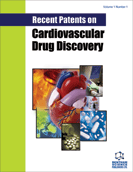Abstract
Recently, regenerative medicine using the transplantation of embryonic stem cells and bone marrow stem cells has been a great success but still has many unconfirmed problems including its clinical evaluation. The aim of this article is to review current literature and some patents regarding molecular therapeutic agents including using MAP kinase TNNI3K for the treatment and diagnosis of acute myocardial ischemia or infarction. TNNI3K is a novel cardiac troponin I-interacting kinase gene and its overexpression may promote cardiac myogenesis, improve cardiac performance, and attenuate ischemia-induced ventricular remodeling. The modulation of embryonal stem cells with high TNNI3K activity using a TNNI3K active peptide could be a useful therapeutic approach for ischemic cardiac diseases. For overexpressing TNNI3K or enhancing TNNI3K activity in cardiac precursor cells, the engraftment of bone marrow cells or embryonic stem cells can effectively promote cardiac myogenesis, beating frequency, and contractile functions, and decrease “silent” (no contraction) cardiac cells after cell transplantion, indicating that the overexpression of TNNI3K can increase the success rate of transplanting embryonic stem cells or bone marrow cells into ischemic hearts for the treatment of ischemic cardiac diseases. Although previous investigations showing that TNNI3K may be involved in the development of cardiac hypertrophy, it is still unclear whether TNNI3K has a role in cardiac hypertrophy or what mechanism is involved in the effects of TNNI3K. To confirm this, further investigations need to be undertaken.
Keywords: TNNI3K, cardiac contraction, cardiac troponin I, apoptosis, ischemia injury, myocardial infarction, cardiac hypertrophy, cardiac ankyrin repeats, molecular therapeutics, &, diagnosis agents
 4
4


